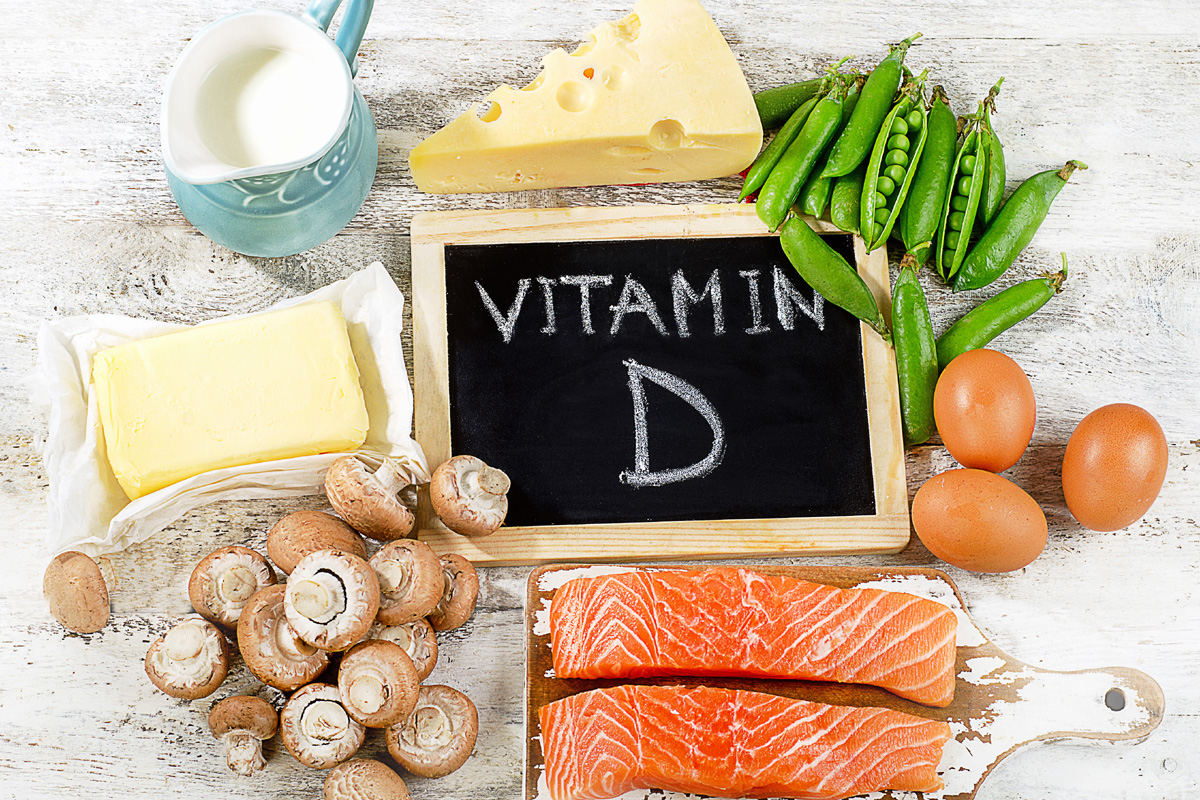Bone health and recovery heavily depend on a nutritionally balanced diet. Essential minerals such as calcium, phosphorus, magnesium, and zinc, as well as vitamin D and protein, are crucial. Calcium-rich foods and vitamin D sources are paramount for absorption. Limiting bone-leaching foods like alcohol, salt, and caffeine is also recommended. A diet that includes Omega-3 fatty acids promotes overall skeletal strength, while maintaining a healthy weight aids in recovery. Consulting a healthcare professional for dietary advice assures tailored input. Delving further into this topic might provide deeper insight into specific dietary plans and guidelines.
Understanding Bone Health
Although often overlooked, understanding bone health is fundamentally essential as it plays a pivotal role in our overall well-being, and scientific evidence increasingly suggests that it is closely tied to our dietary habits and nutritional intake. Bone Density Factors such as age, gender, and genetics can have a substantial impact on the strength and resilience of our skeletal system. However, lifestyle choices and personal habits can also play a critical role in determining bone health.
Exercise’s Influence on bone health is remarkable. Regular physical activity, particularly weight-bearing and muscle-strengthening exercises, can stimulate bone formation and slow down bone loss, thereby increasing bone density. A sedentary lifestyle, on the other hand, can lead to weakened bones and an increased risk of fractures.
Moreover, certain medical conditions and medications can adversely affect bone health. For instance, long-term use of corticosteroids is known to deplete bone mineral density. It’s important to have a thorough understanding of these factors to make informed decisions about maintaining and improving bone health.
The Role of Diet in Bone Health
Dietary choices have a profound impact on bone health, with specific nutrients playing a vital role in maintaining and enhancing the strength and density of the skeletal system. There are many misconceptions, or ‘Bone Health Myths’, that can lead to poor nutrition choices and negatively affect bone health. For instance, the belief that only calcium contributes to bone health is a common myth. While calcium plays an important role, it’s not the sole nutrient that matters.
The ‘Dietary Impact on Bone Density’ is significant. Diets rich in fruits, vegetables, lean proteins, and low-fat dairy can promote bone health. Balanced nutrition is essential, as it provides the body with the necessary vitamins and minerals needed for bone health. However, diets high in sodium, caffeine, and alcohol can deplete the body’s calcium stores and weaken the bones.
Moreover, maintaining a healthy weight is also important for bone health. Obesity increases the risk of fractures and other bone diseases. On the contrary, being underweight is equally detrimental as it can lead to lower bone density. A well-balanced diet, combined with regular exercise, is critical for the best bone health.
Essential Nutrients for Bone Health
Understanding the essential nutrients crucial for bone health is fundamental to maintaining a healthy skeletal system. As we turn to this topic, we will discuss the role of key minerals and the significance of protein in ensuring optimal bone health. This discussion will be grounded in evidence-based research, providing a clear and concise understanding of these critical nutrients.
Vital Minerals for Bones
Enhancing the strength and durability of our bones hinges largely on the intake of certain essential minerals, with calcium and phosphorus leading the pack. These minerals are pivotal in ensuring Bone Density Improvement and enhancing Mineral Absorption Efficiency. Both calcium and phosphorus work synergistically to form the structural framework of our bones. Other essential minerals include magnesium, which aids in calcium metabolism, and zinc, known to stimulate bone-building cells. Trace minerals like boron, copper, and manganese also play significant roles in bone health. A deficiency in any of these minerals can impede bone formation and repair. Hence, incorporating a variety of mineral-rich foods in our diet is crucial for maintaining robust and resilient bones.
Proteins Role in Bone Health
In the domain of bone health, proteins play an essential role, serving as vital nutrients that contribute greatly to the strength and resilience of our skeletal system. Proteins, in fact, make up about 50% of the volume of bone and about one-third of its mass. Adequate protein absorption is therefore essential for bone health. Consuming a balanced diet rich in protein sources such as lean meats, dairy products, and legumes can help. Additionally, research suggests that dietary protein works synergistically with calcium to improve calcium retention and bone metabolism. Ensuring sufficient protein intake is a key component of maintaining prime bone health, assisting in both the building of new bone and the repair of damaged bone.
Foods Rich in Calcium
Calcium-fortified foods, dairy products, and leafy green vegetables serve as important dietary sources of this essential mineral, playing a crucial role in maintaining bone health. Calcium Absorption Factors should be considered when planning a diet, as the body’s capacity to absorb calcium can be influenced by factors such as age and the presence of other nutrients.
In terms of dairy products, milk, cheese, and yogurt are rich sources of calcium. For those seeking Dairy Alternatives, soy milk, almond milk, and fortified juices provide a considerable amount of calcium. Calcium-set tofu, a product made by coagulating soy milk, is another alternative that is high in calcium content.
Leafy green vegetables like kale, collard greens, and spinach are also calcium-rich foods. However, they contain oxalates, which can bind to calcium and can affect its absorption. Hence, they should not be the sole source of dietary calcium.
Incorporating a variety of these foods in your diet can significantly contribute towards maintaining excellent bone health. It is, however, important to consult a healthcare professional or a dietitian to understand the individual dietary requirements and possible interactions with other nutrients.

Importance of Vitamin D
While calcium contributes considerably to bone health, Vitamin D plays an equally critical role, primarily by aiding in the absorption of calcium from the diet. The body cannot properly utilize calcium without adequate levels of Vitamin D. Consequently, a deficiency in this vitamin can lead to softer, thinner and brittle bones, a condition known as osteomalacia in adults and rickets in children.
Vitamin D is unique because it can be synthesized in the skin upon sunlight exposure. The body’s ability to produce Vitamin D this way depends on several factors including the latitude and altitude of the location, the time of year, and the individual’s skin type. Regardless, regular, limited exposure to sunlight can notably contribute to the body’s Vitamin D levels.
In addition to sunlight exposure, dietary intake is another crucial source of Vitamin D. Fatty fish like salmon and mackerel, fish liver oils, and egg yolks are among the few naturally occurring Vitamin D sources. Many foods, such as milk and orange juice, are also often fortified with Vitamin D to guarantee adequate intake. Therefore, a balanced diet combined with safe sun exposure can help maintain healthy Vitamin D levels, promoting bone health and recovery.
Protein and Bone Health
Just as Vitamin D and calcium are essential to bone health, so too is protein, a nutrient often overlooked in discussions of skeletal strength and recovery. Protein plays a pivotal role in bone metabolism, providing the structural matrix for bone and enhancing calcium absorption, thereby promoting bone health and recovery.
The Protein Absorption Efficiency is a key element to ponder when discussing protein’s role in bone health. It refers to the body’s ability to utilize the protein consumed. Proteins with high absorption efficiency are more easily broken down into amino acids and used in the body, contributing directly to bone tissue growth and repair.
Plant-based proteins are a great source of protein and can aid in improving bone health. They are packed with essential amino acids and minerals which are crucial for bone formation and maintenance. Foods like legumes, nuts, seeds, and whole grains are excellent sources of plant-based proteins. However, incorporating a variety of protein sources into the diet is vital for bone health.
The Impact of Magnesium
Shifting focus to another essential mineral, magnesium plays a significant role in bone health and recovery, acting as a cofactor in over 300 enzymatic reactions, including those involved in the synthesis of DNA, RNA, and proteins necessary for bone tissue growth and repair. It also contributes to the structural development of bone, with about 60% of the body’s magnesium found in bone.
Magnesium absorption occurs mainly in the small intestine and is regulated by dietary intake, hormonal factors, and the body’s overall magnesium status. This process is critical for maintaining healthy bones as inadequate absorption can lead to magnesium deficiency.
Numerous studies have linked magnesium deficiency to a higher risk of osteoporosis, a condition characterized by weak and brittle bones. This deficiency can disrupt the balance of calcium and Vitamin D, two other critical nutrients for bone health, thereby impairing bone strength and increasing vulnerability to fractures.
The role of magnesium in bone health highlights the importance of adequate magnesium intake. Failure to meet the recommended daily intake can lead to a decline in bone health and negatively impact recovery. Incorporating magnesium-rich foods into the diet is a vital part of maintaining bone health and promoting recovery.
Incorporating Omega-3 Fatty Acids
Beyond the essential minerals, Omega-3 fatty acids also play an important role in bone health and recovery, offering several benefits that enhance overall skeletal strength and resilience. These polyunsaturated fats are essential for maintaining bone density and preventing osteoporosis.
Omega-3’s anti-inflammatory properties contribute greatly to bone health. Inflammation can accelerate bone loss and inhibit new bone formation. However, by reducing inflammation, Omega-3 fatty acids can mitigate these detrimental effects, supporting bone recovery and overall health.
Fish sources for Omega-3 include salmon, mackerel, and sardines, which are rich in these beneficial fats. Incorporating these foods into your diet can improve bone health. In addition to fish, Omega-3 fatty acids can also be found in flaxseeds, chia seeds, walnuts, and certain types of algae, providing ample opportunities for inclusion in various dietary preferences or restrictions.
To maximize the benefits, it is recommended to incorporate Omega-3 fatty acids in balance with Omega-6 fatty acids, as an imbalance can lead to inflammation, potentially offsetting the benefits for bone health. Ultimately, Omega-3 fatty acids represent an essential component of a well-rounded approach to bone health and recovery.
Limiting Bone-Leaching Foods
While focusing on incorporating beneficial nutrients is critical, it’s equally important to limit the consumption of certain foods that can leach essential minerals from the bones, negatively impacting their health and strength. These bone-leaching foods can contribute to conditions like osteoporosis and bone fractures.
- Alcohol’s impact: Excessive alcohol interferes with the balance of calcium, an essential nutrient for healthy bones. Additionally, alcohol inhibits the production of hormones that promote bone health and can negatively affect the absorption of vitamin D, a key vitamin for calcium absorption.
- Salt consumption: A diet high in salt can trigger increased calcium excretion through the kidneys, which could lead to weakened bones over time.
- Caffeine: Overconsumption can interfere with calcium absorption and lead to bone thinning.
- Soda: The phosphoric acid present in sodas can lead to the loss of calcium from bones.
Dietary Guidelines for Bone Recovery
In the process of bone recovery, specific dietary guidelines can offer considerable support. This includes the intake of essential nutrients, the benefits of calcium-rich foods, and the importance of a balanced diet. This section will provide a detailed exploration of these key nutritional components, underpinned by scientific evidence.
Essential Nutrients for Bones
A multitude of essential nutrients play pivotal roles in maintaining and enhancing bone health, paramount among them being calcium, vitamin D, protein, magnesium, and vitamin K. In the context of bone density improvement and osteoporosis prevention, these nutrients work synergistically to support bone mineralization, collagen synthesis, and overall structural integrity.
- Calcium and Vitamin D: Necessary for bone mineralization, with Vitamin D enhancing calcium absorption.
- Protein: Integral for collagen synthesis, a major component of bone matrix.
- Magnesium: Facilitates calcium metabolism and bone mineralization.
- Vitamin K: Essential for the activation of osteocalcin, a protein that binds calcium to bones.
Clearly, a well-rounded intake of these nutrients is crucial for bone health and recovery, underlining the significance of a complete, nutrient-rich diet.
Calcium-Rich Foods Benefits
Incorporating calcium-rich foods into your daily diet holds immense benefits for bone recovery and overall skeletal strength. Calcium serves as a critical nutrient in bone maintenance and repair, aiding in the prevention of osteoporosis and fractures. For those with lactose intolerance, alternatives such as fortified plant-based milks, leafy greens, and tofu are excellent sources of calcium. Additionally, calcium supplementation can be considered, if recommended by a healthcare professional. However, it’s crucial to mention that excessive calcium intake can have negative effects; hence, it’s essential to maintain a balanced calcium intake. To sum up, a diet rich in calcium not only supports bone health and recovery but also contributes to the overall well-being of the body, making it an essential dietary guideline.
Balancing Diet for Recovery
Optimizing your diet for bone recovery involves a careful balance of essential nutrients, designed to support the body’s natural healing processes. While protein, calcium, and vitamin D play important roles, the significance of hydration and the benefits of fruits should not be overlooked.
- Hydration Importance: Adequate hydration aids in nutrient absorption and delivery. It also helps flush out toxins that can impede the healing process.
- Fruits Benefits: Fruits are rich in antioxidants, fiber, and vitamins essential for bone recovery. Citrus fruits, for example, provide vitamin C, which is necessary for collagen formation.
- Protein: Essential for repairing and building new bone tissue.
- Calcium and Vitamin D: These nutrients work together to strengthen bones, with calcium building bone density and vitamin D enhancing calcium absorption.
A balanced and nutrient-rich diet is important for ideal bone recovery.
Making Healthier Diet Choices
Embracing a vital diet with a focus on specific nutrients can greatly enhance bone health and facilitate faster recovery. Hydration Importance cannot be overstated in this situation. Adequate water intake optimizes nutrient absorption, lubricates joints, and facilitates the removal of waste products from the body, all of which are critical for maintaining bone health and speeding up recovery.
The influence of exercise on diet choices should not be overlooked. Regular physical activity can instigate healthier dietary habits by regulating appetite and improving metabolic health. It also stimulates bone formation, necessitating a diet rich in bone-building nutrients like protein, calcium, and Vitamin D.
Incorporating a variety of nutrient-dense foods such as fruits, vegetables, lean proteins, and whole grains into your diet is essential. These foods provide an array of essential nutrients that contribute to bone strength and recovery. Fats should not be entirely eliminated but chosen wisely. Opt for sources of healthy fats like avocados, nuts, and fish. Finally, moderation is key. Overconsumption, even of healthy foods, can lead to weight gain and other health problems that may impede recovery and compromise bone health.
Frequently Asked Questions
What Are Some Exercises That Can Strengthen Bones Along With a Healthy Diet?
Weight-bearing exercises like walking or jogging, and strength training, particularly weightlifting, can greatly enhance bone density. These activities stimulate bone formation, enhancing strength and reducing the risk of osteoporosis and fractures.
How Does Age Affect Bone Health and What Dietary Changes Are Necessary as We Age?
Ageing process impact includes bone density decline, necessitating dietary adaptation. Calcium and vitamin D intake should be increased to maintain bone health. Regular weight-bearing exercise is also recommended to reduce age-related bone loss.
Can Certain Medications Impact Bone Health and Require Dietary Adjustments?
Yes, certain medications can induce osteoporosis, negatively impacting bone health. Post-medication, dietary management involving calcium and vitamin D supplementation is often required to counteract these effects and promote bone strength and recovery.
Are There Specific Diet Recommendations for Individuals With Osteoporosis?
For individuals with osteoporosis, a diet rich in Osteoporosis Prevention Foods such as dairy, leafy greens, and fish, can enhance Calcium Absorption Efficiency, thereby strengthening bones and potentially slowing the progression of the condition.
How Does Hormonal Imbalance Impact Bone Health and What Dietary Changes Can Be Made to Manage This?
Hormonal imbalance causes significant impact on bone health, often leading to conditions like osteoporosis. Balancing hormones naturally can be achieved through dietary changes, such as increasing calcium and vitamin D intake, and reducing caffeine and alcohol consumption.


